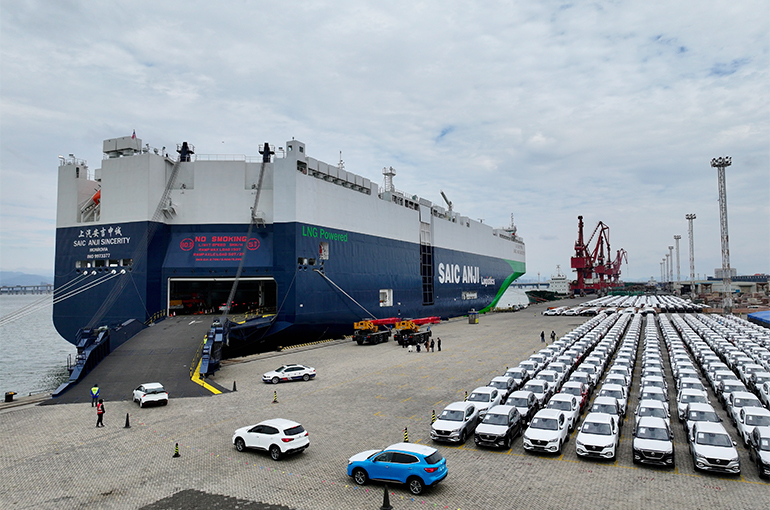 US' 100% Tariff on EV Imports From China to Have Limited Impact, Insiders Say
US' 100% Tariff on EV Imports From China to Have Limited Impact, Insiders Say(Yicai) May 16 -- The United States' recent tariff increase to 100 percent from 25 percent on made-in-China electric vehicles will only slightly affect the Chinese EV sector, according to industry insiders.
The move is just a repeat of history, an independent director of a carmaker told Yicai. The US has issued policies to hinder Japanese and South Korean automakers over the past decades, but the market shares of domestic brands Ford Motor and General Motors have shrunk, the person added.
On May 14, the US government announced steep increases in tariffs on various Chinese imports, including EV batteries, computer chips, and medical products.
The US needs to make greater efforts to raise its local car brands' competitiveness rather than setting thresholds for their foreign rivals, the independent director pointed out.
The move is "more talk than action" regarding its impact on Chinese EV exports, an analyst from a securities trading firm said to Yicai, adding that it is more like an attempt from the Biden administration to get voters' support.
China-made cars have a small market share in the US, according to data from China Customs. The country's exports of new energy vehicles to the US fell 16.2 percent to 12,400 units last year from the previous year, while its global exports surged 67 percent to nearly 1.8 million.
More autos made in China would enter the US if there were no interfering policies, senior managers of several carmakers noted. Chery Automobile and BYD have done business layouts in South America over the past years, aiming to use Mexico as a springboard to enter North America, they said.
Chinese car brands' sales in Mexico jumped 63 percent to 129,300 units last year from 2022, with their market share increasing to 19.5 percent from 6.4 percent in 2019.
Chinese carmakers should not follow the footsteps of their European, US, Japanese, and South Korean peers in going global with their domestic supply chains, the head of a Chinese automaker's overseas business told Yicai. They should instead work with suppliers in the target markets and form a local supply chain to achieve long-term development, the person added.
Editor: Martin Kadiev